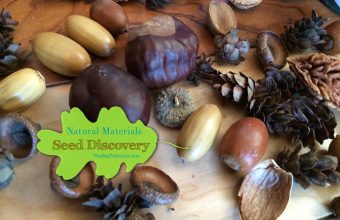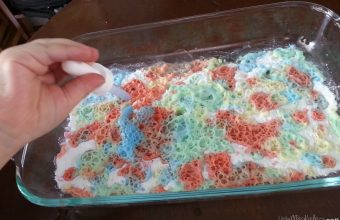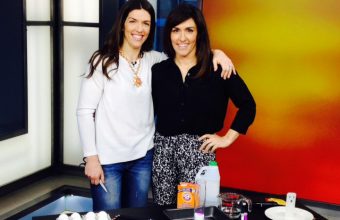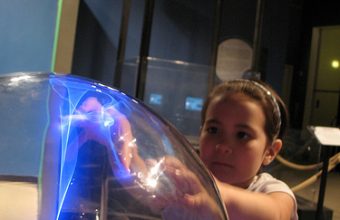Now is not the time to be skeptical of science.
But lately, everywhere you turn, someone knows better than our public health agencies or top doctors, or there’s a new craze that’s usually health-related, and rarely backed by actual evidence?
Health and wellness gurus out there prey on the fear they create towards established science and medicine. Pre-pandemic, Food Babe, David Avocado Wolfe, Dr. Mercola, and Dr. Axe topped the list for charismatic people with shady money-making schemes under the guise of health, presenting credible sounding false info as facts.
It doesn’t stop with health claims. Climate change deniers, gender-identity bigotry and homophobia claims that use false science to promote intolerance, conspiracy theories, “fake news” – we are under a constant barrage of fear-mongering and inaccuracy, usually with the intention to get us to buy things we don’t need as an alternative.
Many adults get sucked in. It’s easy to see why; these claims can sound realistic. So what chances do our kids have to separate fact from fiction? Thankfully, there are ways to help your children be science-literate in an illusionist world.
Look at How You Approach Your Own Beliefs and Fact-Checking
You can’t fix what you don’t acknowledge. Check your own beliefs. Do you share social media posts without looking up whether or not the claim is true? Do you try fads without looking for studies to back it? Do you know how to tell a credible study from a flawed one? Starting with yourself, making these habits become intrinsic for you will make it much easier to impart these practices on to your children.
Teach Them to Look For the Motives
Is this person trying to sell you something? While someone can be selling something or a study sponsored by someone and still be credible, it’s important to consider motivation as a factor. If a health guru is discouraging established, well-researched and tested medication because “Big Pharma just wants money” but is encouraging you to buy expensive, non-regulated things from them instead, that’s a red flag.
Look for the Language Used and the Sources Cited
A lot of articles get shared using the words, “A recent study shows” and then some kind of claim or statistic. Frequently, this study is never outlined or cited. Credible reports will link to the study itself. Sometimes the study is real, but the claims drawn from them are not. Look for the word “suggests”. Suggests means something in the study piqued an interest for further study, not that it is a concrete conclusion. Sometimes an article will link to the study but make a claim not mentioned in the study, or twist the info. Teach them to fact-check beyond one article.
Look at the Source
All sources are not created equal. If it’s from Natural News, be skeptical. If it’s from a medical journal, it’s worth considering. Examples of ways to tell a credible source from a non-credible can be found at academia-research.com. Some sites that appear to be credible but are not, can be found here. And some examples of non-credible science pages can be found here. Remember these lists are examples, and by far not comprehensive. Be skeptical.
Introduce Them to Snopes
Snopes is widely recognized as an accurate fact-checking site. It’s not infallible, but it’s very reliable. If something sounds too good, weird, or scary to be true, take a look at Snopes. (It’s also a really fun way to spend an afternoon. Snopes is awesome.)
Help Them Learn What Makes a Credible Study
Anyone remember stats in university? It was hell, I know. But it’s important! They don’t need to know all the intricate details but teach them about the Scientific Method, and the difference between anecdotal evidence and ones that have gone through proper scientific testing. Talk about logical fallacies like confirmation bias where people will cherry pick only the evidence that supports their beliefs. Confirmation bias and placebo effect are two ways that anecdotal evidence leads us astray. Here are some of the most common ones.
Teach Them to be Skeptical
Even if something supports their beliefs, they should fact-check it anyway. I once heard that the biggest skeptics are magicians. Why would someone who makes a living off magic be so pro-science? Well, because they know how easily people can be fooled by trickery.
Discuss The Credentials of Experts
There are a lot of titles that sound very official but are misleading. Even “Doctor” doesn’t necessarily mean they are a medical doctor. Many internet gurus go by Dr. X but when you check their actual credentials, they have a doctorate not an MD. Technically someone with a doctorate in philosophy could call themselves Doctor and give medical advice, but they wouldn’t be qualified to do so. Some expert titles are made up and require no actual education or expertise.
And not all experts are credible. The pull of money is big. Dr. Oz was once an admired surgeon, and is now a disgraced woo-pusher. Dr. Axe is a chiropractor. While many chiropractors stick to the limits of their expertise, others like Dr. Axe push unsubstantiated alternative medicine for a profit. A chiropractor in my area advertised a “Natural Flu Shot” which is not actually a thing, and a dangerous distraction from the well-researched medical flu shot.
Think Critically About the “Natural = Safe/Better” Trope
The big thing now is to demonize chemicals and push natural. While there isn’t anything inherently wrong with wanting to choose more natural products, they can’t be viewed as automatically safer or better. Many organic pesticides are as or more toxic than synthetic ones for example. Homeopathic medicine has no active ingredient (homeopathic means diluted to the point the active ingredient is untraceable.) Natural and homeopathic medicines are not regulated, which means they vary widely in dosages even in the same bottle and the side-effects are less known. Things like homemade sunscreen and bug spray may not be effective enough.
This isn’t to say that some natural remedies don’t work or that natural is bad – it’s just helpful to remember that chemical is not a scary word (you are made of chemicals—everything is) and that synthetic can be safe, while natural can be dangerous.
Hammer Home “The Dose Makes the Poison”
I’m sure you have seen posts about pesticides found in cereal, or formaldehyde in baby shampoo, etc. While these claims are true, this is another example of needing to check the actual study, not simply the article headline. In most of these cases, to reach a level that would cause damage, you would need to consume or use an unrealistically excessive amount of the product. Amounts so high that consuming that much of anything would be more harmful than the trace amounts of the “scary” thing.
The same is true for claims of benefits. Some foods may contain things that are considered anti-inflammatory, etc., but how much do you have to consume for it to be effective? Often it is an impossible amount.
These are some starting points for raising science-literate children, but the most important thing is to foster an open dialogue.
If they aren’t sure, teach them to ask. If you aren’t sure, look it up together!
Tagged under: kids,science,health and wellness,fact checking
Category: family-life






